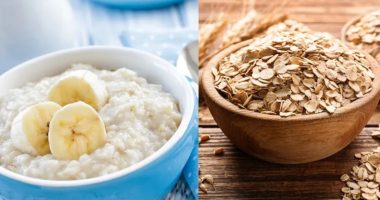10 Reasons to Forget Animal-Based and Go Plant-Based for Low-Carb Weight Management. For years, the “carbs vs. no carbs” debate has dominated weight loss discussions. The Harvard T.H. Chan School of Public Health offers compelling evidence for opting for plant-based over animal-based low-carb diets for long-term weight management. Here are some key reasons to make the switch:
Reason #1: Lower risk of weight gain
The study showed that animal-based (ALCD) and unhealthy (ULCD) low-carb diets were associated with increased weight gain over time. This might be due to higher intakes of calorie-dense animal proteins and unhealthy fats in these diets.
Reason #2: Sustainable support
Plant-based low-carb diets (VLCD and HLCD) generally focus on fiber-rich vegetables, low-glycemic fruits, and healthy fats. This combination keeps you feeling fuller for longer, reducing cravings and promoting sustained weight management.
Reason #3: Nutrient-rich
Plant-based foods are naturally rich in fiber, vitamins, minerals, and antioxidants, which are essential for overall health and well-being. These nutrients can help regulate blood sugar, reduce inflammation, and support digestion, all of which can contribute to weight management.
Reason #4: Lower in saturated fat and cholesterol
Animal-based low-carb diets often rely heavily on meat and dairy products, which can be high in saturated fat and cholesterol. These fats can increase your risk of heart disease, stroke, and other chronic conditions. Plant-based low-carb diets tend to be naturally lower in these unhealthy fats.
Reason #5: Processed carbs
Unhealthy low-carb diets often include processed meats, cheeses, and refined carbohydrates, which can contribute to weight gain and other health problems. Plant-based low-carb diets tend to focus on whole, unprocessed foods, which are a healthier choice.
Reason #6: Reduced risk of chronic diseases
Plant-based diets are rich in antioxidants, vitamins, minerals, and fiber, which can help protect against heart disease, diabetes, inflammation and certain cancers. Animal-based low-carb diets often emphasize saturated fats and cholesterol, potentially increasing the risk of these conditions.
Reason #7: Gut-friendly goodness
Plant-based diets are naturally richer in prebiotics and fiber, which nourish gut bacteria and contribute to better digestion and immune function.
Reason #8: Resource Efficiency
Plant-based protein sources generally require less land, water, and other resources to produce than animal protein sources. This makes them a more efficient and sustainable option for feeding the growing global population.
Reason #9: Environmental Sustainability
Animal agriculture has a significant impact on the environment, contributing to greenhouse gas emissions and deforestation. Choosing plant-based protein and fat sources is a more sustainable and environmentally conscious approach to weight management.
Reason #10: Low-carb Diet Differences
Not all low-carb diets are created equal, especially when it comes to long-term weight management. Ensure you choose a plant-based low-carb diet that prioritizes whole grains, legumes, vegetables, fruits, and healthy fats to ensure you get the nutrients your body needs.
Listen to your body: While plant-based low-carb may be a good option for some, it’s not for everyone. Pay attention to your body’s signals and adjust your diet as needed.
Seek professional guidance: Consulting a registered dietitian or other qualified healthcare professional can help you create a personalized plan that meets your individual needs and preferences.
ALSO READ: Plant-based foods reduce risk of heart disease, diabetes, and mortality – Study

About the Study
The study Published in JAMA Network Open, led by Binkai Liu delves deeper than the simple carb question. It meticulously analyzes data from over 123,000 adults over 32 years, tracking their dietary patterns and weight fluctuations. This extensive analysis reveals that the composition of a low-carb diet plays a crucial role in shaping your future weight trajectory.
The researchers identified five distinct low-carb approaches:
- Total Low-Carb Diet (TLCD): A general reduction in carbohydrate intake.
- Animal-Based Low-Carb Diet (ALCD): High in animal proteins and fats.
- Vegetable-Based Low-Carb Diet (VLCD): High in plant proteins and fats.
- Healthy Low-Carb Diet (HLCD): Emphasizes plant proteins, healthy fats, and minimal refined carbs.
- Unhealthy Low-Carb Diet (ULCD): High in animal proteins, unhealthy fats, and processed carbs.
Here’s where the plot thickens: the study reveals that plant-based and healthy low-carb diets (HLCD and VLCD) emerged as champions for long-term weight management. Participants who embraced these approaches experienced slower weight gain compared to those following other low-carb styles.
Intriguingly, the data paints a contrasting picture for other low-carb categories. Those who increased their adherence to TLCD, ALCD, and ULCD, characterized by higher intakes of animal proteins, unhealthy fats, and refined carbs, actually gained more weight over time.
Senior author Qi Sun summarizes the study’s significance: “Our findings shatter the one-size-fits-all mentality surrounding low-carb diets. We need to move beyond simply counting carbs and instead focus on the quality of our food choices, even within low-carb frameworks.”
This research offers invaluable insights for crafting personalized and sustainable weight management strategies. It highlights the importance of prioritizing whole, nutrient-rich foods regardless of your overall carb intake. Whether you choose to limit carbs or not, remember: quality matters more than quantity for long-term success.
Key Takeaways:
- Plant-based and healthy low-carb diets are friends to long-term weight management, while animal-based and unhealthy ones can be foes.
- Diets high in unhealthy fats and processed carbs, even within low-carb, can lead to weight gain.
- Quality whole foods, not just carb restriction, are the key to sustainable weight management.
DON’T MISS: How do plant-based diets impact body weight?









